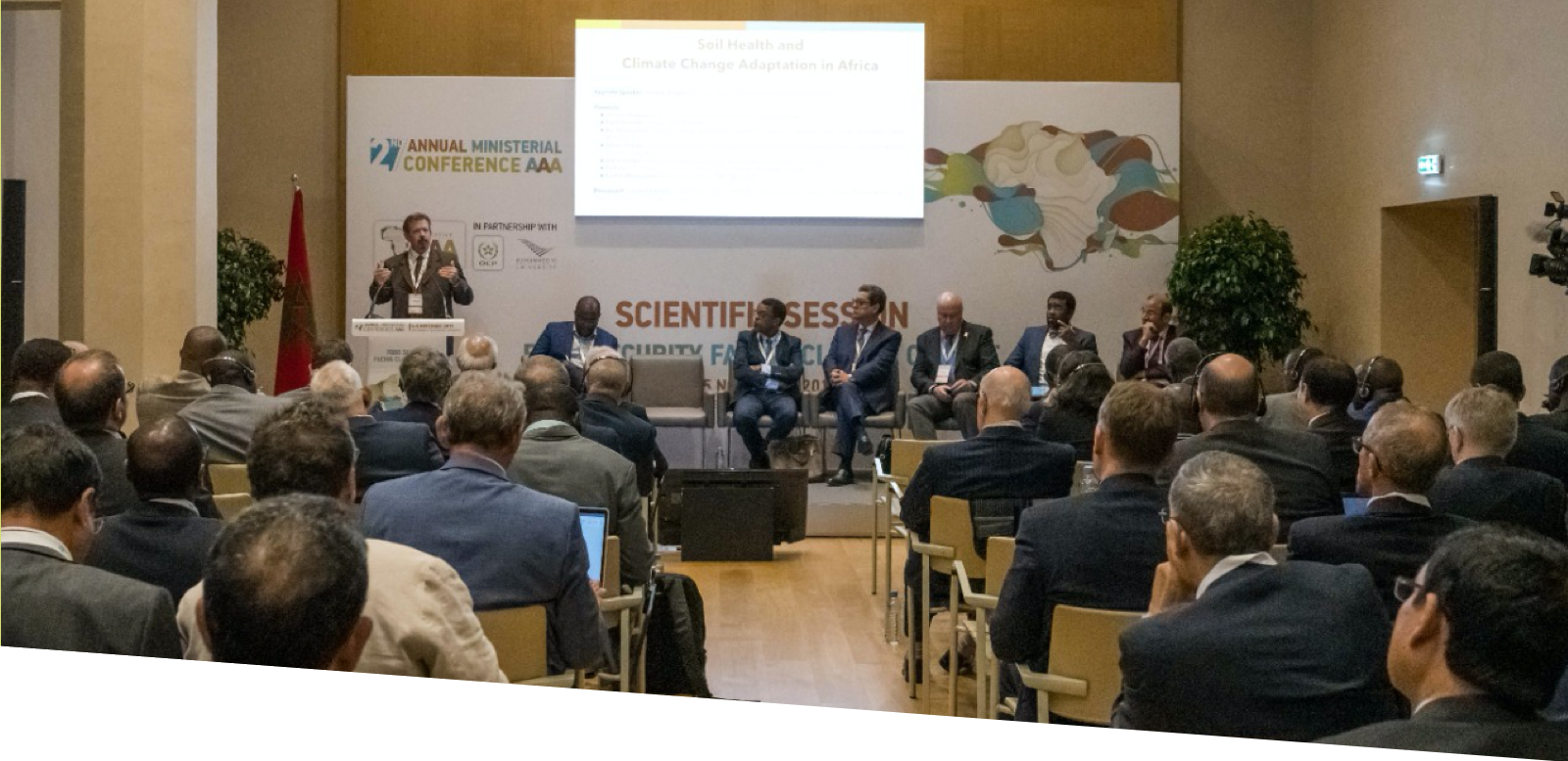Solutions

Advocacy
The cost of Africa's adaptation to climate change is estimated at between 30 and 50 billion US$ per year over the next decade, according to the International Monetary Fund (IMF). This amount includes among others the environmental investments that will be made by countries, and should be devoted to resilient infrastructure that benefits people.
Therefore, the continent needs to mobilize these funds from international financial institutions to make these important investments. Indeed, even though the level of emissions per person is one of the lowest in the world, the continent is highly vulnerable to the effects of climate change, hence the need to adapt.
Regulators on the continent should focus on three priority sectors to ensure that their economies are not severely affected by the effects of climate
change. This will require investment in infrastructure that is resilient to natural shocks, education, health and social protection mechanisms as a priority, and improving living standards.
With adequate resources, African agriculture will be able not only to adapt to climate change, but also to meet the challenges of productivity and sustainable development.
The AAA Initiative promotes adaptation action through policy advocacy to ensure that the voice of farmers is heard: The AAA Initiative Foundation will engage policymakers and practitioners at national, regional and international levels, making the voice of African farmers heard and attracting support for prioritizing African adaptation.
To achieve this, the AAA Initiative is committed to :
 Promote African agricultural adaptation efforts in the context of relevant fora such as the Conference of the Parties (COP) of the UNFCCC.
Promote African agricultural adaptation efforts in the context of relevant fora such as the Conference of the Parties (COP) of the UNFCCC.
 Enhance dialogue on African adaptation at national, regional and international levels to ensure that policy level decision-making better takes into account any new development.
Enhance dialogue on African adaptation at national, regional and international levels to ensure that policy level decision-making better takes into account any new development.
 Advocate for the needs, priorities and contexts of vulnerable populations in all relevant national, regional and international platforms to ensure that adaptation interventions are better planned, designed and implemented in a manner that is appropriate to for the diverse needs of farmers.
Advocate for the needs, priorities and contexts of vulnerable populations in all relevant national, regional and international platforms to ensure that adaptation interventions are better planned, designed and implemented in a manner that is appropriate to for the diverse needs of farmers.
 Accelerate the exchange and use of climate knowledge for adaptation action, building on its African mandate.
Accelerate the exchange and use of climate knowledge for adaptation action, building on its African mandate.

Project Support
The AAA Initiative promotes and encourages the implementation of concrete projects to improve soil management, agricultural water management, climate risk management and financing capacities. It puts forward technical solutions, but also good practices and accompanying measures, including the strengthening of technical and managerial capacities for the benefit of African countries.
The AAA Initiative is built on the Comprehensive Africa Agriculture
Development Program (CAADP), launched in 2003 by the African Union, which encourages the development of National Agricultural Investment Plans (NAIPs) for African countries. It is also based on the instruments recommended by the United Nations Frame Convention on Climate Change: technology transfer, preparation of appropriate agricultural policies and strategies, setting up of "bankable" projects that meet the criteria of development partners and donors, and the promotion of South-South cooperation.

Capacity Building
There are significant gaps in the capacity of key institutions to support the implementation of climate-smart agriculture in African countries. To advance African adaptation, two particular capacity challenges stand out: (i) knowledge and (ii) responsibility, which, if left unaddressed, risk derailing the "how" of adaptation efforts on the continent.
The African Agriculture Adaptation to Climate Change (AAA) initiative aims to
ensure that climate funds are equitably distributed between adaptation and mitigation. The AAA Initiative will build the capacity of national and regional institutions in Africa responsible for coordinating, managing and implementing actions that support adaptation in African agriculture. Particular focus will be placed on knowledge and accountability, which will be supported by targeted training and advice to key institutions.
